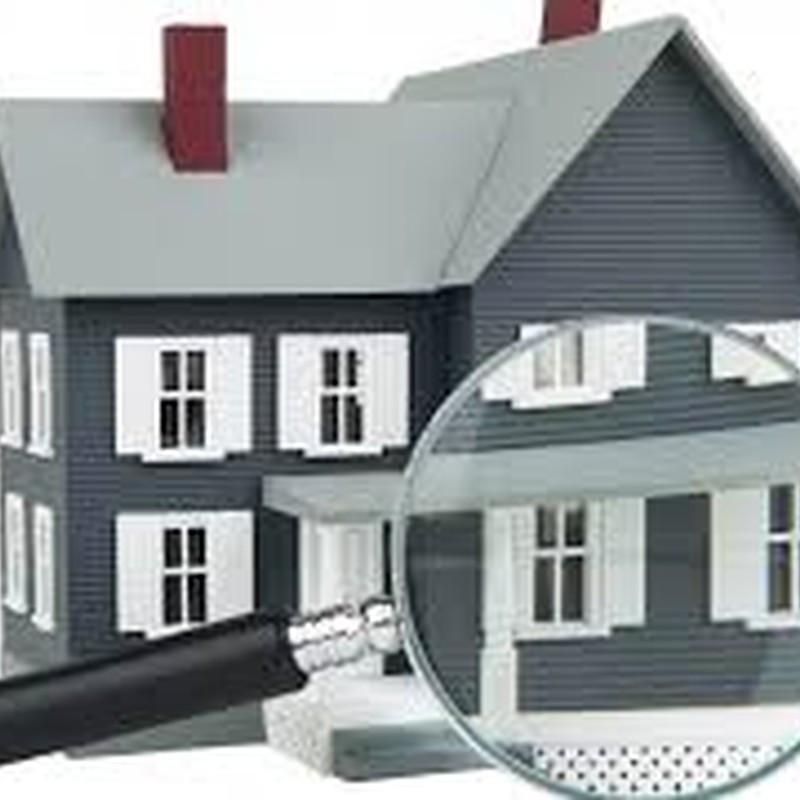What's your Property Profile?
Mon April 8th 2019
As Kiwis, most of us have grown up with the idea that owning property is a smart thing to do – and something that's almost a rite of passage. While it can be a great investment and the foundation for a lovely lifestyle, many of us don't take the time to actually figure out our home-ownership goals before launching into things.
Setting your property goals before you start hunting
So you want to buy a house. Have you stopped to ask yourself why?
As Kiwis, most of us have grown up with the idea that owning property is a smart thing to do – and something that's almost a rite of passage. While it can be a great investment and the foundation for a lovely lifestyle, many of us don't take the time to actually figure out our home-ownership goals before launching into things.
And that's a mistake. You're more likely to be successful if you start out with a definitive plan in place – one that outlines what you're hoping to get from owning property. For example, maybe you're looking for a nice family home, something to settle down in for a long time. Maybe you're looking to build a portfolio of property that will mean you eventually supplement or totally replace your income. Or, maybe you see property as a great long-term investment – something to put in place now for retirement. If your goal is to build a property portfolio, you should be looking for quite different things in a house. But if you don't have that goal clear, you could be swayed by a lovely backyard or nice kitchen, when you should be looking for a property with great rent yields and low maintenance costs.
Setting your goals now will make your property hunt much faster, easier and more successful – you'll be able to spot the good properties, and quickly dismiss those that don't work.
So, what is your property profile? We've outlined some of the most common below. It pays to take a moment to decide which you are, and note down a list of your property ideals and deal breakers.
The Small Investor
Historically, real estate has had a long-term, stable growth in value, so owning just two or three properties – your home and some rentals – is an excellent way of building wealth for retirement. You'll earn hundreds of thousands of dollars in capital gains, and may even earn money through rents along the way.
And in New Zealand, the tax on the income gained from capital gains is still easy to sidestep – it only applies to people who buy and sell properties very quickly. These people are classified as property traders, and will pay tax on their capital gains. Under the current law, if you're planning to buy property and hold onto it for longer than ten years, you won't need to pay tax on gains.
And since a capital gains tax is still fairly unpopular in New Zealand, it is unlikely that more stringent tax rules will come into place any time soon.
The Property Mogul
Like the small investor, the property mogul is looking for properties with excellent rental prospects. You may consider apartments and townhouses in urban areas, alongside more traditional dwellings.
If your plan involves 'flipping' some properties, that is, buying, then quickly selling the property with a few improvements, you'll need to factor capital gains tax into the equation – and it will mean your family home could be taxed too.
Most serious investors, therefore, plan to keep their properties for more than five years, leveraging off the capital growth to purchase their next properties, and so on.
While most small investors are looking for ready-to-go homes with easy maintenance, the property mogul has more options. With a larger portfolio, it will make financial sense to employ a property manager, or to make managing rentals a full-time career. That means a property that potentially needs more work and attention might still be suitable – it could have great rent yields and excellent prospect for capital growth. You might choose a property with a large high-maintenance backyard because it can be sub-divided later, or an older home that may need lots of fixing, but is in a very good neighbourhood.
The Nester
If you're looking for a home for your family – somewhere you can give your kids a stable environment, without the upheaval of moving between rentals – you should be looking for a place that will fit you now, and into the future.
This will be a balance – you'll want to buy something you can comfortably afford (even if interest rates go up significantly), but you should also be looking for a house that can feel like home for at least 10 years. It doesn't need to be flashy or perfect. It does need to be big enough, and with issues that you're factoring into your purchase price, such as the need for a new roof, bathroom or fence.
The good news is that living in your own home for 10 years will mean you can safely count on some return on your investment. But since this isn't your primary objective, you may not prioritise the same things an investor would. If you love gardening, and have kids, a low maintenance backyard might not be on your list. If you have someone handy in the family, it might make more sense to buy a home that needs more love and attention – you might snap up a bargain, and get out the DIY tools on the weekends, something you couldn't do if you were renting it out.
The Ladder Climber
Buying your ideal family home may be not within your sights right now, so getting a foot on the ladder is your goal. That might mean you only plan to stay in the home for five or so years – enough time to refresh the bathroom, rip up the old carpet and get the backyard under control. If this is your goal, it also pays to have a plan for what you'll do once you're ready to move on.
Is this home likely to turn into a rental? Do you want to sell it in the hopes of funding a bigger, better home? Having this future goal in mind will impact on your decisions now. For a future-rental home, you'll need to consider rent yields. For a sell-on home, your focus should be on snapping up a bargain in a high-growth area, where you'll see the value of your property grow quickly.
You'll almost certainly be looking for a doer-upper, where you can add value, rather than buying a home that has already been refreshed. The ultimate is finding a home that is undervalued because of cosmetic issues – the structure of the house (walls, floors, foundations and roof) are sound, but the place looks a mess with shabby carpet and drapes, peeling paint and scummy bathroom and kitchen.
Creating Your SMART Goals
Once you have an idea of what kind of property owner you'd like to be, it's time to start setting some SMART goals – Specific, Measurable, Attainable, Realistic and Timely. When you're crystal clear on what you're looking for – and when you want it by – you'll find your focus sharpens, and your priorities will become resolute!
It can be trickier than you expect to define a SMART goal – to do it well you need information. And that means educating yourself about the market you're entering.
Here's how you could do this:
-Visit open homes for properties you think might suit your plan
-Make notes about its features and downsides
-Visit auctions – or check on the sale price – for these properties to understand what they're being sold for
-If you're looking to rent out your property, scour Trademe to understand what rents are like in different areas
-Understand your own financial position – what can you afford, realistically?
Once you have a clear picture of the market you're heading into and what you want, generally, you'll be able to define a SMART goal with a timeline that feels reasonable – maybe that's something like "I want a rental that pays for itself for 10 years, and then returns at least 10% after that", or "I want a three bedroom, two bathroom family home by Christmas."
Getting Specific
From that overarching goal, you'll be able to build a profile of the kind of property you should be focusing on – maybe you can narrow your search to just two or three suburbs, to a specific kind or size of house, or quantity of land. Maybe you can discount any that have already been renovated, or are looking only at homes with minor dwellings. There are any number of criteria you can begin to narrow your search around. We've created a list below to get you started:
Ideals or deal breakers to consider
-High rent-yield area
-Low maintenance
-Neat and tidy, requiring no major renovation work
-Well insulated, with heating
-Neighbourhood is quiet, friendly and safe
-Neighbourhood is vibrant and busy
-Neighbourhood is up and coming
-Neighbourhood is wealthy or desirable
-Near schools, amenities and/or public transport
-Attractively presented – little or no cosmetic or renovation work needed
-Needs cosmetic improvements
-Needs major renovation or repairs
-Potential for additions, subdivisions or renovation
-Fits your family now – consider storage, bathrooms, bedrooms
-Will fit your family in the future – consider storage, bathrooms, bedrooms
-Has a large backyard
-Has a small backyard
-Has no backyard
-Has a bath, the right number of bathrooms, garaging
-Near to other properties you own
-In an area you know well
-Low or no body-corporate fees
Goals are dreams with a deadline
Getting clear and specific about what you want from your property journey can pay dividends. It will help you stay focused on what you really want, avoid tempting diversions, and ultimately end up with your dream scenario faster. It all starts with being clear about what you want and reasonable about what you can expect, then putting some measurable details and a timeline around that so you stick to them.
For more help in defining your home-ownership goals, talk to the experts at Cave Financial.

Need our help?
We're here to answer your questions.
service@cavefinancial.co.nz
09 302 7310
1D Roberta Avenue
Glendowie
Auckland 1071
New Zealand


